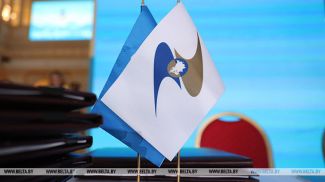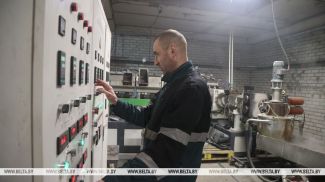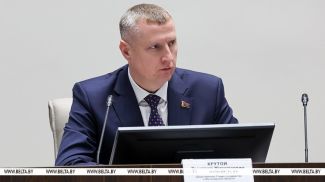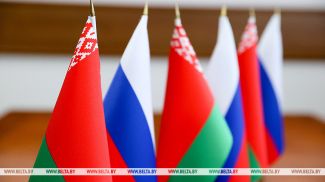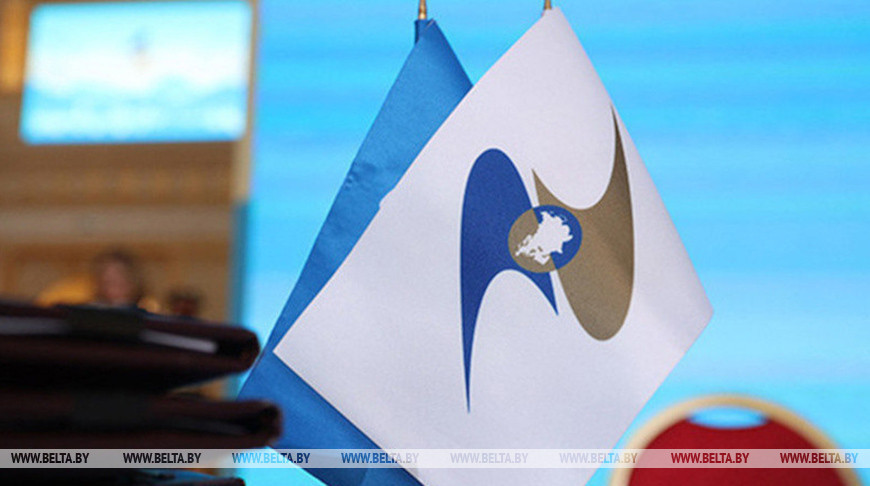
An archive photo
MINSK, 23 April (BelTA) – A draft roadmap to promote trade and economic cooperation between the Eurasian Economic Union (EAEU) countries and Iran is in the works. The specifics of the draft roadmap were discussed at a seminar co-chaired by Member of the Board (Minister) for Trade of the Eurasian Economic Commission (EEC) Andrey Slepnev and EEC Minister in charge of Industry and Agriculture Gohar Barseghyan, BelTA learned from the press service of the Eurasian Economic Commission.
The participants of the seminar explored the possibility to ramp up cooperation with Iran in manufacturing and the agricultural industry, which includes operation of businesses in special economic zones on the territory of the EAEU and Iran.
The full-fledged free trade agreement between the Eurasian Economic Union and the Islamic Republic of Iran will enter into force on 15 May.
The agreement, in particular, introduces a number of dialogue tools to help the business circles of the EAEU and Iran discuss in detail various avenues of cooperation. “As far as industry-to-industry cooperation is concerned, we see significant cooperation potential between industrial and agricultural enterprises. Other promising avenues of cooperation include scientific research, technology and innovation. The EAEU member states have great economic potential, while the availability of resources and willingness to expand cooperation are conducive to ramping up trade between the member states and Iran, increasing the output of competitive products and expanding the export of high-tech goods,” Gohar Barseghyan remarked.
The most promising areas of cooperation with Iran are to be included in the cooperation roadmap that is currently in the works. This roadmap is designed to facilitate the implementation of the provisions of the free trade agreement.
Andrey Slepnev emphasized that such seminars are an effective platform to discuss stumbling blocks and drivers of trade and economic cooperation between the EAEU countries and Iran. He added that after the agreement comes into force, companies from the EAEU countries will get unique terms of access to the Iranian market. He expressed hope that the parties will make the most of the emerging opportunities, including in industrial cooperation.
The seminar was attended by representatives of government agencies, business associations and companies from the EAEU countries representing various sectors of manufacturing and agriculture and interested in cooperation with Iranian partners and entering the Iranian market.
The participants of the seminar explored the possibility to ramp up cooperation with Iran in manufacturing and the agricultural industry, which includes operation of businesses in special economic zones on the territory of the EAEU and Iran.
The full-fledged free trade agreement between the Eurasian Economic Union and the Islamic Republic of Iran will enter into force on 15 May.
The agreement, in particular, introduces a number of dialogue tools to help the business circles of the EAEU and Iran discuss in detail various avenues of cooperation. “As far as industry-to-industry cooperation is concerned, we see significant cooperation potential between industrial and agricultural enterprises. Other promising avenues of cooperation include scientific research, technology and innovation. The EAEU member states have great economic potential, while the availability of resources and willingness to expand cooperation are conducive to ramping up trade between the member states and Iran, increasing the output of competitive products and expanding the export of high-tech goods,” Gohar Barseghyan remarked.
The most promising areas of cooperation with Iran are to be included in the cooperation roadmap that is currently in the works. This roadmap is designed to facilitate the implementation of the provisions of the free trade agreement.
Andrey Slepnev emphasized that such seminars are an effective platform to discuss stumbling blocks and drivers of trade and economic cooperation between the EAEU countries and Iran. He added that after the agreement comes into force, companies from the EAEU countries will get unique terms of access to the Iranian market. He expressed hope that the parties will make the most of the emerging opportunities, including in industrial cooperation.
The seminar was attended by representatives of government agencies, business associations and companies from the EAEU countries representing various sectors of manufacturing and agriculture and interested in cooperation with Iranian partners and entering the Iranian market.




